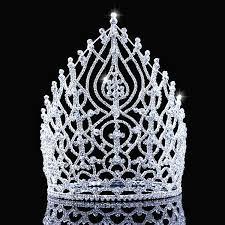Beyond Black Beauty
African American Women, Image-Making & Resistance
Become a Sponsor!
Beyond Black Beauty Opening February 2025
With your support, you can help make this exhibit possible. Please consider becoming a significant contributor by becoming a partner!
Miss FAMU and the Aesthetics of Excellence: In the long arc of the African American experience, two key pursuits have shaped ideas about racial progress: formal education and the freedom to define worthiness on self-determined terms. The Black College Queen tradition exists precisely at the intersection of African American educational aspirations and collective image-making.
In spite of the early 20th century’s violent racism, African American institutions across the United States independently produced beauty contests as fundraisers and leisurely social gatherings, apart from the white gaze. Black beauty contests also became a type of race work allowing African Americans opportunities to convey their own ideal representations of the race and counter damaging stereotypes promoted throughout the larger society. With the decades-long support of major Black media outlets, such as EBONY Magazine, the Black College Queen tradition continues to allow for the exploration of both attainability and aspiration, while heralding young African American within the context of community.
Crowns: My Hair, My Soul, My Freedom by Sandro Miller: Historically, national media has invested in a racialized standard for ugliness built upon phenotypical distance from whiteness. Hair has been central for gaging the distance between “good and “bad.” Yet, Black women have resisted the notion of dominant society’s complete control of how they see themselves internally and how they project themselves in the public sphere. According to the artist, Black women’s hair is a “declaration of freedom, choice and sensibility.” This declaration is evident in her remarkable portraits of Black women with inspiring coils, braids, and structured strands atop their heads.
Can I See Me? The Black Archive’s African American Doll Collection: Recognizing the political meaning of beauty as a marker of human value, African American leaders, from Marcus Garvey to Martin Luther King, have made strong affirmations about “Black beauty.” The Universal Negro Improvement Association, founded by Garvey, bought a small toy manufacturing company in Harlem, declaring Black children needed “dolls that look like them.” This collection captures the history African American image-making as a political apparatus. Visitors who immerse themselves within this multi-pronged installation will find themselves appreciative of African Americans’ transformative and complex perspectives on beauty, identity and image-making.




